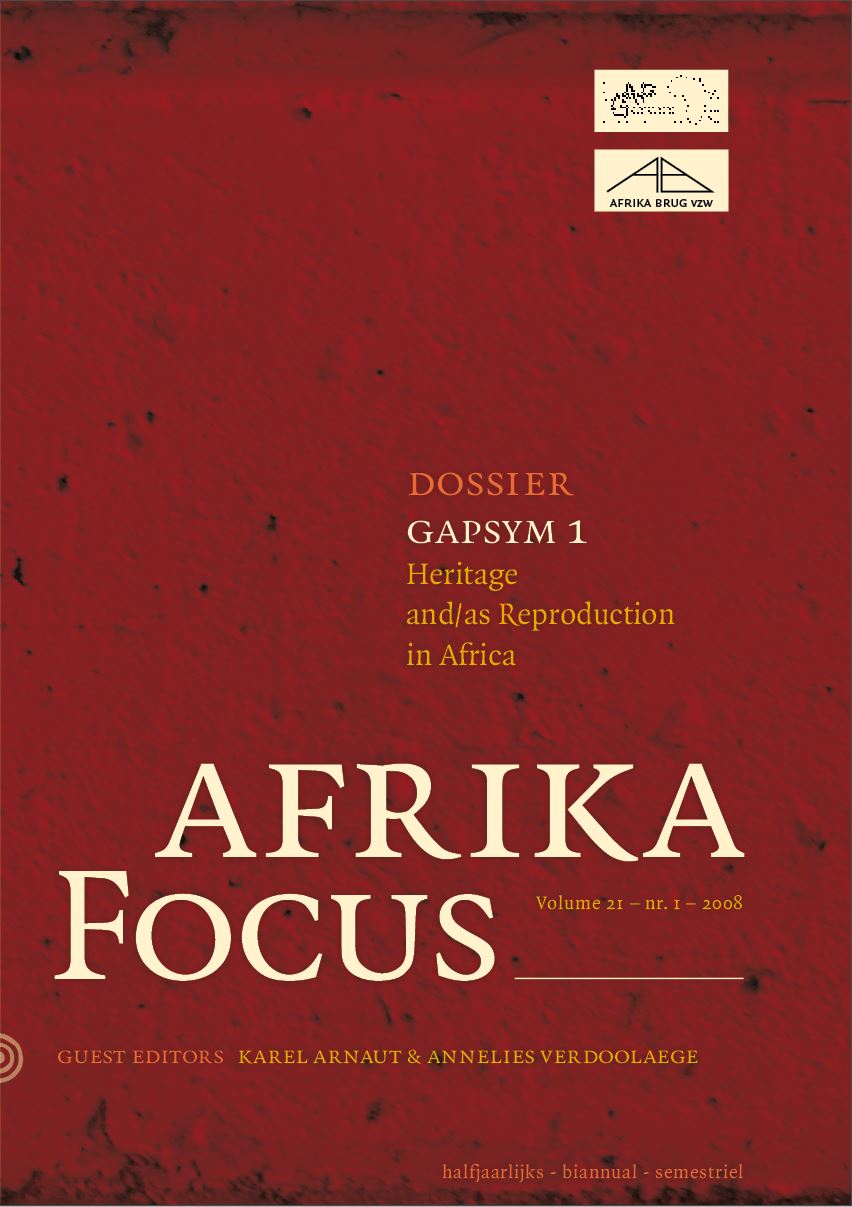From “Patrimoine partagé” to “whose heritage”? Critical reflections on colonial built heritage in the city of Lubumbashi, Democratic Republic of the Congo
DOI:
https://doi.org/10.21825/af.v21i1.5052Abstract
This paper questions the binary structure of the notion “shared heritage”/ “patrimoine partagé” that has emerged in recent debates on built heritage in former colonial territories. In the discourses of, for instance, ICOMOS, the notion stands for a heritage “shared” by former “colonizers” and former “colonized”, both categories being considered – albeit often implicitly – as homogenous entities. In line with Stuart Hall, I will argue for an approach to colonial built heritage that takes up the more complex nature of the question “whose heritage?” By focusing on the remarkable colonial built architecture of the city of Lubumbashi, situated in the Democratic Republic of the Congo, I will make a plea for re-thinking and re-positioning this legacy as a critical filter between colonial history and postcolonial memory, thus extending traditional standards of documenting built legacy through formal description and physical assessment that often isolate buildings from their urban as well as historical contexts (social, economic, cultural and/or political). Being influenced by the work of the Mémoires de Lubumbashi-group as well as recent scholarship in the field of architectural history informed by postcolonial studies, the approach on built heritage presented here is twofold. On the one hand, a plea is made to link the city’s urban form to colonial history by relating it to the cosmopolitan society that produced and experienced it. On the other hand, an approach is suggested that acknowledges how specific urban places and buildings in the city are currently being re-appropriated as “lieux de mémoire” by a variety of agents that do not necessarily (want to) share this heritage. Key words: Colonial Architecture, Built Heritage, Democratic Republic Congo, LubumbashiDownloads
Published
How to Cite
Issue
Section
License
Authors who publish with this journal agree to the following terms
Authors retain copyright and grant the journal right of first publication with the work simultaneously licensed under a Creative Commons Attribution License that allows others to share the work with an acknowledgement of the work's authorship and initial publication in this journal.
Authors are able to enter into separate, additional contractual arrangements for the non-exclusive distribution of the journal's published version of the work (e.g., post it to an institutional repository or publish it in a book), with an acknowledgement of its initial publication in this journal.
Authors are permitted and encouraged to post their work online (e.g., in institutional repositories or on their website) prior to and during the submission process, as it can lead to productive exchanges, as well as earlier and greater citation of published work (See The Effect of Open Access).


